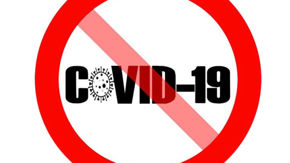2 mins read//
You'd be surprised how frequently people throw around the term "monopoly" for companies like Google, Facebook, and Amazon.
However, neither of the companies are monopolies. So, let's tackle some common misconceptions and figure out what a monopoly is and whether it matches your idea of it.
Is the Amazon Model a Monopoly or a Market Leader?
Amazon is dominant in countless industries, but it still allows some competition to happen. It has a major chunk of online retail, but not all retail, as it has to contend with companies like Walmart too.
Today, under its diverse acquisitions, you'll find that Amazon owns the home security company Ring, supermarket chain Whole Foods Market, live-streaming service Twitch, social cataloging website Goodreads, online audiobook service Audible, and so many more companies.
There are countless other companies under the Amazon brand. As you'll likely know, Amazon is behind the virtual assistant Amazon Alexa, the Amazon Kindle, and Amazon Fire TV.
It also offers its streaming service Amazon Prime Video and the grocery delivery service Amazon Fresh. Plus, Amazon Pharmacy allows customers to complete an entire pharmacy transaction on a desktop or mobile device using the Amazon app.
As the world's biggest shopping portal, Amazon makes it tough for non-Amazon affiliated competition to break through on the platform.
Say you become a seller on Amazon offering a product. It's been reported that if Amazon determines you're getting a lot of traffic and sales, and there's demand for your product, the company will copy it.
Amazon creates a similar product, and when shoppers search for it, your shop gets pushed down while Amazon's product comes up higher in the search results. That begs the question: how can you compete with Amazon on its own website?
At the same time, many people shop on Amazon for its prices and reach. So if you choose a different e-commerce platform, you might lose out on customers based on that.
At the end of the day, whatever your opinion on Amazon, it's certainly a market leader than a monopoly. There's still a choice to shop elsewhere, at your supermarket, on another online retailer, or with a small business.
The Unexpected Consequences of Cornering a Market
Meta, formerly known as Facebook, acquired two other major social networking platforms: WhatsApp and Instagram. All three of these platforms help people connect and share their lives with friends, family, and strangers.
The platforms become such an integral part of people's lives that they're usually the primary method of communication. Many also use them to run their businesses.
Since many people use their Facebook profiles to sign in to various apps and services, while the platform was down, they found themselves locked out of shopping sites and unable to use smart devices. Businesses also suffered as they couldn't connect to their clients.
Meta is a much bigger part of our lives than we realize, and the blackout goes to showcase this. But Meta's customers aren't the only one's to experience unintended consequences, the company itself is too.
Across the world, multiple competition regulators have called for Meta's companies to be split up, due to the sheer size the company has. Whether you believe this should happen or not, Meta's business being split is certainly an unintended consequence.
Are Today's Market Leaders the Monopolies of Tomorrow?
A company making its way to the top and dominating a market is nothing to worry about by itself. The worries begin when you question whether these market leaders are engaging in monopolistic practices and where that would lead.
Using Amazon to shop is easy and convenient. It also puts money into a company that has been involved in some controversies. Using Meta to chat is, again, effortless. But what's to stop another blackout from happening?
Are there fail-safes in place? How do you ensure that the companies leading the way today won't grow to push away any other competition? Does that job fall to the company itself or the government?











